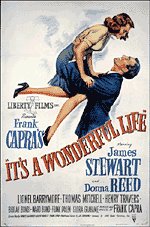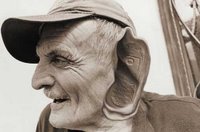 Did you scrapbook as a child? Did you save photos, art work, poems, cards, mementos and then place and paste them in themed order? Silly hobby really, but if you ever start, it can be addictive. Oh, and the pleasure you get later, looking back at the smiling tinsel teeth of youth.
Did you scrapbook as a child? Did you save photos, art work, poems, cards, mementos and then place and paste them in themed order? Silly hobby really, but if you ever start, it can be addictive. Oh, and the pleasure you get later, looking back at the smiling tinsel teeth of youth.
What if you were given the opportunity to look at the childhood keepsakes of someone famous? With the new book edited by Patti Carr Black titled Early Escapades, we are given more than mementos; we are privy to her earliest works. We get a taste of young Eudora’s humor, wit and turn of phrase. This precocious child, then lively teen, was placing pen to paper as early as the age of eleven. 
The book opens with editor Black’s essay on Miss Welty’s early years. She provides the background story to Eudora’s pen-and-ink sketches, poems, articles and short stories. Then, like an accomplished scrapbooker, Black arranges the works in timeline fashion, pleasing to the eye and fun to read.
Young Eudora’s first story, “The Glorious Apology,” is a hoot. We see our hero, Fitzhugh H. Green, struggling with the meaning of life and a wife feigning interest. One pictures Nick and Nora of the Thin Man series. Welty hams up the thirteen chapters with magazine cut-outs and imagined reviews like pretend critic Andrew Volstead, a man who had this to say about the book, “Never heard of it.”
In the 1930s Miss Welty contributed feature columns to the Jackson Daily News. In one such article titled “Vacations Lure Jacksonians,” she demonstrates a delightful wit, “In the days of the cave man, the vacation was extremely simple. Only the men went on them. No man is going to drag a woman 40 miles.”
In interviews with Miss Welty, she never admitted to being a poet. She probably means a serious poet because she did love to write limericks and rhymes. For a friend traveling to Chicago via Illinois Central, she made a limerick for each station on the way. One starts off, “There was an old girl of Winona. Who lived in a pongee Kimono.”
If anything, do pick up this book to see the hilarious caricatures in the back. In 1933 Miss Welty drew them to cheer-up a homesick friend. They include notables like Faulkner, Mae West, Hitler, and Eleanor Roosevelt. They will surely have the same cheering effect on you.
My Mission...Not Impossible...Make Mississippi Read!
Wednesday, March 29, 2006
Early Escapades (copy)
Tags: Booktalk
Monday, March 27, 2006
Optimist's Daughter discussion
 Today we discussed The Optimist’s Daughter by Eudora Welty. This makes three of her books now under my belt. Maybe, by retirement, I will have read and discussed them all with fellow Mississippians. One can only hope.
Today we discussed The Optimist’s Daughter by Eudora Welty. This makes three of her books now under my belt. Maybe, by retirement, I will have read and discussed them all with fellow Mississippians. One can only hope.
Miss Welty originally suggested “Poor Eyes” as the title. Although, I like the optimist idea, I think "poor eyes" is more fitting and a proper tell-tale title. (Note: Bookmark dealing with eye troubles, i.e. The Tell-Tale Heart, Sees Behind Trees, Double Vision) By the end of the story it’s obvious all the characters are having or have had vision troubles.
Laurel becomes the optimist when she drops the breadboard and looks to her future. She doesn’t need the mementos of past lives; let them go to another family’s future. She takes only the things needed and instilled by her parents and grandparents, values.
Sunday, March 26, 2006
The Optimist's Daughter Notes
Setting:
- Late 50s early 60s
- New Orleans during Carnival in March
- Childhood home Mount Salus, MS
- Clay County, WV, Grandmother’s farm
- Judge McKelva
- Laurel McKelva Hand
- (Wanda) Fay McKelva
- Becky McKelva
- Only child Laurel Hand returns to family home in MS when she hears her father, Judge McKelva, is having trouble with his vision.
- The Judge dies and new wife Fay inherits the home and all its belongings. Laurel will be given money.
- Good vs. Evil
- Materialism vs. Personal Values
- Class/Caste/Status/Cultures
- Death
- Rhythm of Life including below list...
A. Counting booties/pages/time/friends
B. Traffic outside motel/hospital/carnival
C. Reading aloud/daughter to father/parents
D. Ticking of the family mantel clock
E. Chopping of wood in the mountains
F. Wind and rain that summons the ghost
G. Flapping of the wings/beating of the heart of the small chimney swallow
Style:- A light comical feel, to a somber mode, then reflective and finally an explosive ending
Tuesday, March 21, 2006
5 Rules
2. Edit for mistakes
3. Edit from reader’s perspective
4. Let others edit without loss of meaning
Wednesday, March 15, 2006
Victorian Houses of MS (copy)
 We’ve all seen the classic, It’s a Wonderful Life, with Jimmy Stewart and Donna Reed. Before NBC bought the rights, you could watch the film on many channels at the same time. I remember actually watching the movie four nights in a row in the late ‘80s. Needless to say, I can quote some lines.
We’ve all seen the classic, It’s a Wonderful Life, with Jimmy Stewart and Donna Reed. Before NBC bought the rights, you could watch the film on many channels at the same time. I remember actually watching the movie four nights in a row in the late ‘80s. Needless to say, I can quote some lines.
One of my favorite ideas from the movie revolves around the Granville house, a warped, frustrated, old Queen Anne in need of repair. We find Mary Bailey, babe in arm, wallpapering the foyer or scrubbing the wooden floors as she transforms the house into a home.
Nothing is more romantic than returning a run-down Victorian to its original grand state. I use the word romantic because everyone knows “practical” would not be appropriate. For it's true, you will spend more money when you are in love.
Contemplating such a dream? Victorian Houses of Mississippi by Sherry Pace is the first step on your long road to restoration. Pace has photographed 143 distinctly different Victorian homes throughout the state. She has taken great pains to provide color details of the infamous wooden spindles and gingerbread trim associated with this architecture.
Tour the State of Mississippi alphabetically as you flip through this coffee table-size reference. Towns included in our area are Batesville, Como, Hernando, Oxford, Sardis, Senatobia, and Water Valley. One could tour smaller towns and discover these beauties on foot, then relax with a meal from local establishments.
Before you go, be sure to read the essay included in the front of the book. “Late Victorian Residential Architecture in Mississippi” is written by Richard J. Cawthon, an architectural historian for the Mississippi Department of Archives and History. His authoritative knowledge includes why “Victorian” may not be the correct word and the difference between styles like Italianate and Queen Anne. He will have you looking through the book as he provides visual examples to match descriptions.
I ran into Mrs. Pace serendipitously when she and husband John stopped in Como to photograph the United Methodist Church. This photo session will be included in her new book for Mississippians titled, Historical Churches of Mississippi.
So, if in the middle of your romantic restoration you discover a lack of money, leave Uncle Billy alone and include this book when you appeal to Mr. Potter.
Tags: Booktalk
Tuesday, March 14, 2006
Lucy (1991-2006)
Monday, March 13, 2006
Has
Sprung!
Wishing
everyone
a lovely
spring break!
Wednesday, March 08, 2006
Talk 2 the Hand (Copy)
 Picture a 1970s avocado kitchen, when a phone rings. Two teenagers set into action, from far corners of the house, a Super Bowl moment complete with sprints, hurdles, tackles and tumbles. As they turn the corner, into the phone nook, a very tired mother intercepts the play.
Picture a 1970s avocado kitchen, when a phone rings. Two teenagers set into action, from far corners of the house, a Super Bowl moment complete with sprints, hurdles, tackles and tumbles. As they turn the corner, into the phone nook, a very tired mother intercepts the play.
The caller wishes to speak to the lovely daughter of the house. With a smug smile, the phone is now taken on a journey, through lush jungle and arid desert (past the pantry and into the laundry room) where it rest behind two closed doors. Ah, the cords of a ‘70s phone.
Now, within the lair, two 13 year-old girls hash-out some dastardly plan. Although the lair is behind closed doors, the conversation is hushed, for brother could be lurking.
What has happened to the privacy aspect of phones? Cell phones are everywhere and people seem to feel they have the right to yap in the most public of places. Why are we subjected to overhearing these banal exchanges? Do we really care if you fed the dog or picked up the dry cleaning?
In Talk to the Hand by Lynn Truss, the author writes of prolific ill-mannered habits employed by the masses. You may remember the author’s 2004 title, Eats, Shoots and Leaves. Her hilarious look at our lackadaisical treatment of the English language spent 25 weeks on the bestseller’s list. It has been suggested her next book be titled, Presses, Pants and Flies.
I love the way she opens her new book, Talk to the Hand. She actually gives thanks to the “nameless people who were rude” to her. She gained free research from all those who cut her off in traffic, forgot to say excuse me, or let a curse word drop into her normally curse-free ears.
She never had a topic so “in her face” and a title so easily obtained. The title originates from our Jerry Springer culture that insists you talk to the hand because the face isn’t listening. Although the gesture is passé, the attitude continues. For it is my observation, you have to talk to the hand because the face is talking to the other hand, which is curled around a cell phone.
Tags: Booktalk
Monday, March 06, 2006
Talk 2 the Hand Notes (2)
“It’s as if we now believe in some spooky virtual way, that wherever we are, it’s home.” 102p
How did this happen? One minute we are dressing for dinner at Krystals (’76) the next we are trotting around Wal-Mart in our rollers and house slippers. When did casual wear become everyday, sloppy week-end and morning wear?
“People of all ages evidently think nothing of reaching into a bag, discovering something surplus to requirements, holding it out at arm’s length and then insouciantly letting go.” 104p
One of my many summer jobs were cleaning parking lots at different establishments. My favorite assignment, the spa and its five rows of sixteen spaces eachalways welded treasures. In this Sunday after church chore, I walked up and down the spaces picking up trash. Nothing was too small or too gross in my boss’s opinion. Every Sunday without fail I found cigarette packs, money and diapers. Cigarette packs and pocket change understandable, but diapers?
“Surely a technology so miraculous deserves to convey communication that’s a bit less banal?” 116p
Wal-Mart conversations, where the shopper is yelling into his hand, “Did you mail the Visa bill?” Really, you pay minutes to discuss whether th e cat’s been fed? Couldn’t it wait, post dinner table question, “How was your day?”
e cat’s been fed? Couldn’t it wait, post dinner table question, “How was your day?”
Just where did we lose the secrecy and privacy phones used to demand? I know I’m not alone in the phone call you took in the laundry room with door closed so no one was wise to your plans. Sometimes the 12 foot cord wasn’t long enough as you crawl into the dryer pulling yet another door shut.
I really think people want you to hear them chat on the cell. Proves they are popular with many, many cell phone friends. You feel extremely important when callers hound you for advice. “Wear the green one it looks good with your eyes.”
What happened to the “got to justify purchase” attitude? I need one in case my car breaks down or I fall and can’t get up. How did my grandfather work the farm 12 hours without cell phone back-up? We finally broke down and bought one when I started driving to Alabama. Well, we still have it and my commute is 15 miles. I’m eager to read Stephen King’s new book, The Cell. We need someone with his twisted mind to make people afraid to use them. That’s the only way to stop their world domination. Oh, if The Cell has the same effect as Jaws we will be in library heaven.
I’m eager to read Stephen King’s new book, The Cell. We need someone with his twisted mind to make people afraid to use them. That’s the only way to stop their world domination. Oh, if The Cell has the same effect as Jaws we will be in library heaven.
Sunday, March 05, 2006
Notes: Talk to the Hand
Lynne Truss in Talk to the Hand gives thanks to the “nameless people who were rude” for there would be no book. Probably got most of her material from the local Wal-Mart.
“I don’t like that” or as Truss calls it, the elbow skin test. (p4) If a pinched elbow takes more than 2 seconds to pop back into place, you may be old. Old and intolerant of cell phones or other new techie rudenesses found in our current pop-culture world. Also, rudeness is a universal flashpoint. p7
Reminds me of the teenage employee who liked to just burp (large & loud) for no other reason than she could or so she thought she could. Oh, the embarrassment I suffered when she let one rip in front of the FOL president. She did not adhere to Truss’s, “Remember you are with other people; show some consideration.” p12 “Manners are based on an ideal of empathy, of imagining the impact of one’s own actions on others.” p14 Truss leads us to equate good manners not only to virtue but with positive heroism. What this employee thought was funny, was seen as disgusting and very immature. She hardly envisioned her act as indicative of young and dumb, or she wouldn’t have done it.
The coin is turned when we, well-mannered humans think of ill manners. “Everyone else has bad manners; we have occasional bad moments. Everyone else is rude; we are sometimes a bit preoccupied.” p19
Pete and I got a kick out of this sentence. “When we exclaim at the standards of courtesy on the roads, we ought to remember what it’s like to drive in Italy.” (p38) The Italians are so crazy; they will pass people on turns, not knowing if anyone is on the other side. When we were out in the country, we noticed how drivers pulled over, almost into ditches, to let those behind them pass. Funny, most Americans aren’t sure why a rearview mirror is even installed in cars.
I like Truss’s equating politeness as a ritual of tennis. We bat, back and forth, niceties until someone gets tired. Perpetual motion has been discovered as two well mannered gents exchange an unending array of thank you(s), sorry(s) and you’re welcomes. p43
Book Club Options
I was thinking of adding Joan Didion's Year of Magical Thinking to our book club readings. The discussion would be totally different from the NYT forum’s current string.
The ladies in our club are older and possibly facing or have faced the death of a spouse. I can predict, without wavering, they will want to know why Didion did not seek solace in religion. (Please, this is not my point of view, but rather I’m gearing up to prepare for certain conversation.) She mentions attending church, both Catholic and Episcopal, so they will assume she is religious. They will question, “Why not turn to the Lord in your hour of need?”
I would also like to add to my certainty; they will think the memoir self-serving and egotistical. Didion relied on no one else for answers, and sought grief release from within. Just like Frey couldn’t allow help from the AA teachings (the Bible) and knew he would beat the addiction using internal fortitude.
I’ll counter with memoirs being the ultimate in self-expression writing, a way of understanding the world through one’s own perceived life.
Thursday, March 02, 2006
Mardi Gras Readings (copy)
Mardi Gras continued as planned this year even after hurricane Katrina ruined some traditional floats and costumes, just six months earlier. Yet reports from the newspapers indicate crowds, although smaller, were still reveling with the old pre-disaster glee.
The oldest of krewes, Rex, was forced this year to make anew or make do. For example, their royal accoutrements were damaged beyond repair, and the mud-baked and mold-caked floats received fresh paint. This monarchy has remained “chin-up” with King Rex advocating marshland conservation and his Queen “working-out” so as to manipulate the new heavier gown.
Some critics felt the celebrations should have been postponed this year, others suggested Mardi Gras venues like Mobile and Biloxi as replacements. Fat Tuesday isn’t really “fat” unless it occurs in the original den of debauchery. There is no substitute for the purple, green and gold streets of N'awlans. After Katrina hit, the publishing world went to work on producing collections of stories about the Big Easy. Don’t think of these books as rush jobs, most were written during an extended period of time and just compiled after Katrina. Four of these books are quite stellar and bring the New Orleans experience to life.
After Katrina hit, the publishing world went to work on producing collections of stories about the Big Easy. Don’t think of these books as rush jobs, most were written during an extended period of time and just compiled after Katrina. Four of these books are quite stellar and bring the New Orleans experience to life. New Orleans, Mon Amour by Andrei Codrescu chronicles the authors twenty years in the city. You may recognize his name from NRP’s All Things Considered. Codrescu moved to New Orleans from Transylvania, trading one seemingly creepy home for another. These short, easy to read vignettes, begin with his initial acclimations to the south and end with his day by day thoughts of Katrina. His honest reporting leaves you feeling his pain.
New Orleans, Mon Amour by Andrei Codrescu chronicles the authors twenty years in the city. You may recognize his name from NRP’s All Things Considered. Codrescu moved to New Orleans from Transylvania, trading one seemingly creepy home for another. These short, easy to read vignettes, begin with his initial acclimations to the south and end with his day by day thoughts of Katrina. His honest reporting leaves you feeling his pain. Roy Blount Jr. will have you whistling tunes as you ramble through his New Orleans with Feet on the Street. Blount visits eight different areas in the city where, “He captures all the wonderful and rich history - culinary, literary, and political - of a city that figured prominently in the lives of Jefferson Davis (who died there), Truman Capote (who was conceived there), and Zora Neale Hurston (who studied voodoo there).”
Roy Blount Jr. will have you whistling tunes as you ramble through his New Orleans with Feet on the Street. Blount visits eight different areas in the city where, “He captures all the wonderful and rich history - culinary, literary, and political - of a city that figured prominently in the lives of Jefferson Davis (who died there), Truman Capote (who was conceived there), and Zora Neale Hurston (who studied voodoo there).” Author Rob Walker is successful at explaining the oddities of the city through his Letters from New Orleans. In his first letter he begins, “Random bullets are a problem in New Orleans, especially on New Year’s Eve. Apparently it’s something of a tradition among certain locals to step outside and pop off a few rounds.” Walker is fun to follow as he avoids these falling bullets and other urban troubles.
Author Rob Walker is successful at explaining the oddities of the city through his Letters from New Orleans. In his first letter he begins, “Random bullets are a problem in New Orleans, especially on New Year’s Eve. Apparently it’s something of a tradition among certain locals to step outside and pop off a few rounds.” Walker is fun to follow as he avoids these falling bullets and other urban troubles. Lastly, Why New Orleans Matters by Tom Piazza will inspire you to help in the city’s recuperation efforts. We all know the city had a spirit found in no other place. Piazza says, “That spirit is in terrible jeopardy right now. If it dies, something precious and profound will go out of the world forever.”
Lastly, Why New Orleans Matters by Tom Piazza will inspire you to help in the city’s recuperation efforts. We all know the city had a spirit found in no other place. Piazza says, “That spirit is in terrible jeopardy right now. If it dies, something precious and profound will go out of the world forever.”
Tags: Booktalk





